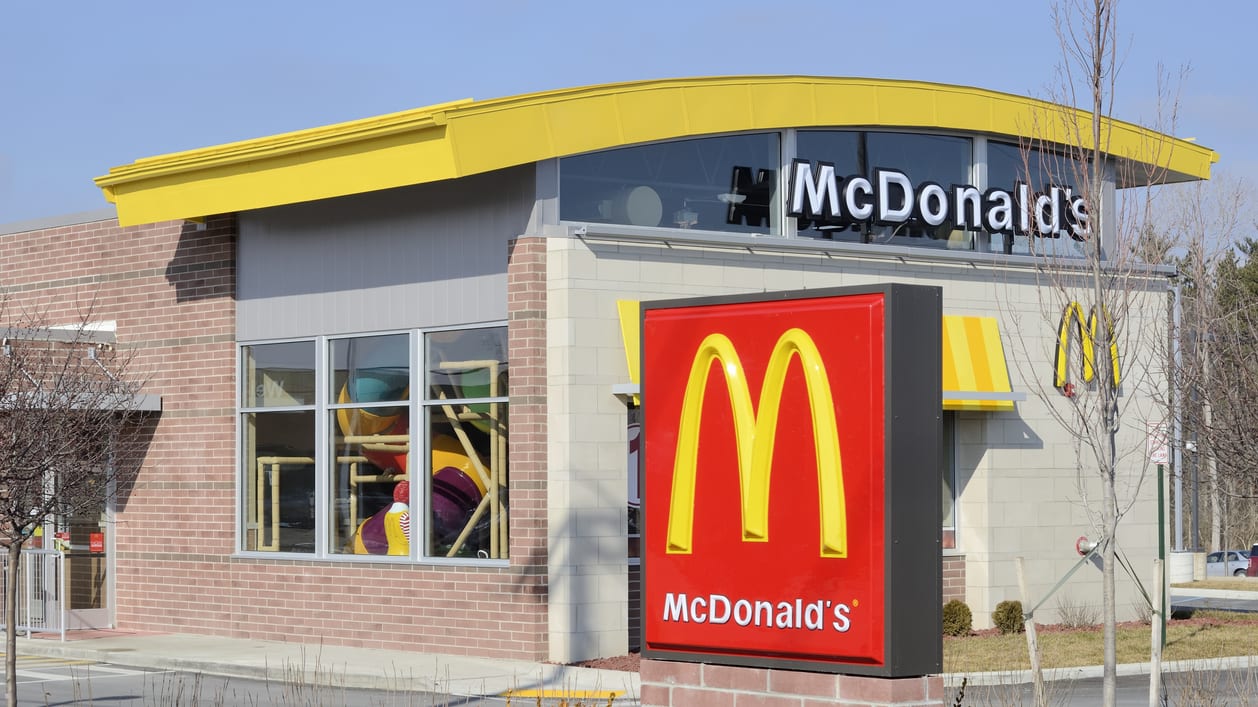Three McDonald's franchisees employed hundreds of children who were too young to work long or late hours and sometimes put them in dangerous situations, according to the U.S. Department of Labor (DOL). In at least one case, the children were too young to legally work at all.
The DOL investigated Bauer Food, Archways Richwood and Bell Restaurant Group—three separate franchisees that operate a total of 62 McDonald's locations in Indiana, Kentucky, Maryland and Ohio—and found they employed 305 children to work more than the legally permitted hours and perform tasks prohibited by law for young workers. The agency leveled $212,544 in civil penalties against the employers.
Under federal law, children must be at least 14 years old to work at fast-food restaurants. DOL investigators found that two 10-year-olds worked, but weren't paid, at a Louisville, Ky., McDonald's restaurant, sometimes as late as 2 a.m. One of them was allowed to operate a deep fryer, which is illegal for workers younger than 16 years old.
"Under no circumstances should there ever be a 10-year-old child working in a fast-food kitchen around hot grills, ovens and deep fryers," said DOL Wage and Hour Division District Director Karen Garnett-Civils in Louisville.
Tiffanie Boyd, senior vice president and chief people officer for McDonald's USA, said, "These reports are unacceptable, deeply troubling and run afoul of the high expectations we have for the entire McDonald's brand. It is not lost on us the significant responsibility we carry to ensure a positive and safe experience for everyone under the arches. We are committed to ensuring our franchisees have the resources they need to foster safe workplaces for all employees and maintain compliance with all labor laws."
Bauer Food said the two 10-year-olds were children of a night manager and were not approved to be in that part of the restaurant. The company said it has taken steps to ensure its policy regarding children visiting a parent at work is clear to all employees.
The DOL is "seeing an increase in federal child labor violations, including allowing minors to operate equipment or handle types of work that endangers them or employs them for more hours or later in the day than federal law allows," Garnett-Civils said.
We've gathered articles on the news from SHRM Online and other trusted sources.
Additional Violations
The 10-year-olds in Louisville prepared and distributed food orders, cleaned the store, worked at the drive-thru window and operated a register.
Another McDonald's franchisee near Pittsburgh broke U.S. labor laws by allowing 14- and 15-year-olds to work outside of legal hours at 13 restaurants, the DOL said in December 2022. The department found similar violations at Burger King, Popeyes and Subway locations in North Carolina, South Carolina, Georgia and Florida earlier in 2022.
(CBS News)
Child Labor Violations Growing
The DOL found at least 688 minors were employed illegally in hazardous occupations in fiscal year 2022, the highest annual count since fiscal year 2011. Among them was a 15-year-old who was injured while using a deep fryer at a McDonald's in Morristown, Tenn., in June 2022.
Enforcement Action Underway
The Kentucky investigations are part of an ongoing effort by the DOL to stop child labor abuses in the Southeast.
The DOL's top attorney, Solicitor Seema Nanda, has criticized states such as Arkansas and Ohio that are working to roll back child worker protections, saying such efforts are irresponsible.
(Associated Press and SHRM Online)
Bills Call for Higher Penalties
A pair of bills recently introduced in Congress would boost the financial penalties against employers that violate federal child labor laws. The Justice for Exploited Children Act in the House of Representatives and the Child Labor Prevention Act in the Senate share similar goals and provisions. Currently, the maximum penalty is $15,138 for routine violations and $68,801 for violations that cause the serious injury or death of a minor.
An organization run by AI is not a futuristic concept. Such technology is already a part of many workplaces and will continue to shape the labor market and HR. Here's how employers and employees can successfully manage generative AI and other AI-powered systems.




